Building on Two Decades of Partnership: HAC & the New Mexico Mortgage Finance Authority
In the summer of 2022, the New Mexico Mortgage Finance Authority (MFA) faced a difficult challenge. Several state legislators and farmworker groups asked the organization to help meet the housing needs of migrant and seasonal farmworkers. Since farms employ farmworkers with the shifting seasons, many farmworkers only stay in a community for a few months before needing to move elsewhere in search of work. Affordable housing development is complex in the best of cases. Underwriting a project that would have a near complete turnover of residents every four or five months seemed almost impossible.
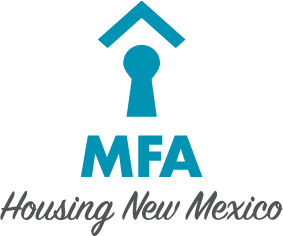 So, MFA called the Housing Assistance Council (HAC). This wasn’t the first or second time that HAC helped MFA address challenges in its programs. In fact, HAC and MFA have a working relationship well over two decades old. Because of this extensive engagement, MFA Executive Director and CEO Izzy Hernandez knew he could rely on HAC Housing Consultant Eugene (Gene) Gonzalez to help find a solution to this challenge.
So, MFA called the Housing Assistance Council (HAC). This wasn’t the first or second time that HAC helped MFA address challenges in its programs. In fact, HAC and MFA have a working relationship well over two decades old. Because of this extensive engagement, MFA Executive Director and CEO Izzy Hernandez knew he could rely on HAC Housing Consultant Eugene (Gene) Gonzalez to help find a solution to this challenge.
Gene connected MFA with groups across the southwest working on similar projects housing migrant farmworkers. With HAC’s help and advice from peers, MFA was able to identify a developer and line up alternate financing options for a project that meets this critical housing need. The development is in its initial phase, but for Hernandez, this is just the latest example of HAC’s reliable, ongoing partnership.
HAC began working with MFA in the early 2000s. A few years earlier, MFA was selected to administer all of New Mexico’s housing programs. Many of the on-the-ground housing organizations who needed MFA funding the most were struggling to obtain designation as community housing development organizations (CHDOs). CHDO designation is a prerequisite to accessing the federal and state programs MFA administered. So, HAC helped eight organizations identify their capacity needs, provided technical assistance to meet those needs, and guided them through the process to obtain CHDO designation. As a result, each of the eight organizations was able to access MFA funds, which allowed MFA to turn those program dollars into homes in communities that desperately needed them.
While the specifics of HAC and MFA’s collaboration has evolved over time to meet the unique needs of each project, the core challenge HAC helps MFA address remains the same. Like all state housing authorities, MFA relies on the success of its client housing organizations. If they do not succeed, MFA cannot make the most of federal and state programs and cannot meet, as Hernandez puts it, “the extraordinary need for affordable housing.” HAC has long helped and continues to help build the capacity of MFA clients. This not only helps to build more affordable homes in rural New Mexico; according to Hernandez, HAC’s work helps MFA “reach communities we couldn’t reach before.”
When HAC began working with Tierra Del Sol Housing Corporation, one of MFA’s clients, the organization was rehabbing nearly 100 homes per year and building only about nine units per year. HAC provided training and technical assistance to help Tierra Del Sol with land acquisition, green building, energy efficiency, and more. With HAC’s help, the nonprofit expanded its self-help program, began building entire neighborhoods of farmworker housing, and grew to become the largest housing rehabber in the state of New Mexico. In addition, TDS accomplished all this development while focusing work in colonias, communities near the U.S.-Mexico border characterized by high poverty rates and substandard living conditions. Looking back on this incredible success, Hernandez is quick to say that “HAC has played a big role in that.”
Nowadays, MFA frequently refers struggling clients to HAC. Once referred, HAC often includes these organizations in our capacity building and technical assistance cohorts, where they receive one-on-one technical guidance and capacity building assistance. According to Hernandez, whenever HAC receives a new round of funding for technical assistance, he receives a call from Gene asking which groups in New Mexico need help. “We have some groups that were on the bubble of surviving or not,” says Hernandez, “but we have never had one group go out of business. HAC kept them in the game.”
The three hundred plus housing organizations in New Mexico all play an important role in meeting the state’s housing needs. In 2021, they collectively assisted more than 25,000 families in finding quality affordable housing. HAC capacity building assistance helps to ensure that these groups can build homes, effectively implement housing assistance programs, and remain in compliance.
Click here to learn more about HAC’s training and technical assistance.

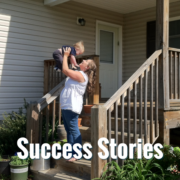
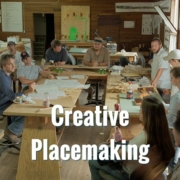
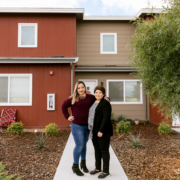

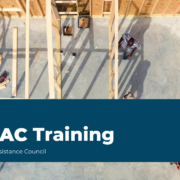
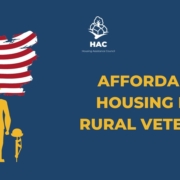 Housing Assistance Council
Housing Assistance Council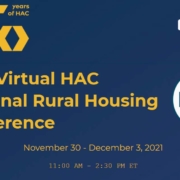
 U.S. Department of Agriculture
U.S. Department of Agriculture Jay Mallin Photos
Jay Mallin Photos The Housing Assistance Council would like to thank Jeff Mosley for over nine years of service to rural America at HAC. As the Director of HAC’s Training and Technical Assistance Division, he helped guide thousands of person-hours and millions of dollars to develop communities in need. Jeff leaves for New Zealand as a 2018 Ian Axford Fellow in Public Policy, a prestigious opportunity. Jeff’s work will focus on how underserved communities access capital for developing affordable housing and community facilities, while also looking at capacity building support resources for community-led organizations.
The Housing Assistance Council would like to thank Jeff Mosley for over nine years of service to rural America at HAC. As the Director of HAC’s Training and Technical Assistance Division, he helped guide thousands of person-hours and millions of dollars to develop communities in need. Jeff leaves for New Zealand as a 2018 Ian Axford Fellow in Public Policy, a prestigious opportunity. Jeff’s work will focus on how underserved communities access capital for developing affordable housing and community facilities, while also looking at capacity building support resources for community-led organizations. HAC is also pleased to announce that our own Shonterria Charleston will step into the Director of Technical Assistance and Training position. In a career spanning several positions at HAC, Shonterria has brought tremendous knowledge, enthusiasm and dedication to her work. In her most recent position as Program and Training Manager, she oversaw HAC’s RCDI program, Veterans Initiative and training activities. Having served in the Army, Shonterria champions and cares deeply about the many issues and challenges veterans encounter. She also speaks movingly about how her role as a mom and daughter deepens her commitment to rural housing and social issues.
HAC is also pleased to announce that our own Shonterria Charleston will step into the Director of Technical Assistance and Training position. In a career spanning several positions at HAC, Shonterria has brought tremendous knowledge, enthusiasm and dedication to her work. In her most recent position as Program and Training Manager, she oversaw HAC’s RCDI program, Veterans Initiative and training activities. Having served in the Army, Shonterria champions and cares deeply about the many issues and challenges veterans encounter. She also speaks movingly about how her role as a mom and daughter deepens her commitment to rural housing and social issues.